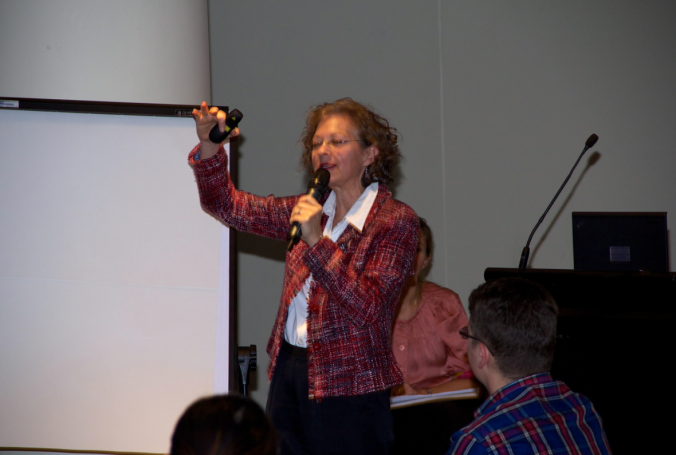The IDF World Congress in Melbourne closes today, and it’s been a delightful five days.
For me, it began with my address to the “Young Leaders” Friday night – 137 diabetes advocates between the ages of 18 and 30 from 70 countries who are working to increase diabetes awareness, education and healthy living in their country. If you spend an hour in a room with them, you will marvel at how passionate, committed, mature and hopeful they are.
I addressed the Young Leaders as Novo Nordisk’s Keynote speaker and then facilitated a workshop to help them develop their personal stories of living with diabetes and include some of the major findings from Novo’s DAWN2 (Diabetes Attitude, Wishes and Needs) study. Predominantly to live well patients need: 1) Family involvement and support; 2) Education and 3) Fair Treatment.
Being quite honest, in some ways it’s a double-edged sword to come to a diabetes conference. To sit for five days and hear lecture after lecture about the biology, medicine, devices and psychology of diabetes On the one hand I am lifted by the work being done in the field – and the passionate, caring, genuine experts who are wedded to the cause. I revel in learning what is new, about the advances we’ve made, those around the corner and five and ten years off, and I am among my own. The easy new friendships and conversations that spring up are a rare treasure.
Yet, I am also reminded non-stop of my condition: that no matter how hard I work managing my type 1 diabetes there are no guarantees for a continued healthy future. By its very nature, while we try to control the beast, blood sugar is unpredictable and intense management, while our best card to play, is to some degree a wild card. It was upsetting as well the first few days to learn at this conference that two of my fellow diabetes advocates, even with all their hard work managing their diabetes, each have a new complication. Yet, I have also heard some positive news, that longevity with type 1 diabetes does not necessarily mean you will get complications. In the end, all we can do is our best each day.
So what have I learned? That the IDF have two inspiring stewards, President, Sir Michael Hirst, whose own daughter has type 1 diabetes, and new CEO Petra Wilson. That both are committed to the cause and come with many skills, talents and new ideas.
With Sir Michael’s background in Parliament, he aims to help reform governmental and environmental policy to make healthy choices easier. Wilson’s tech and healthcare background at Cisco will serve her aim to improve the reach and efficiency of healthcare through online technology.
I have also learned that:
• Too many healthcare providers (HCP) still talk in terms of patient “adherence” and “compliance.”
• The behavioral sessions were too small for the overflowing crowds that couldn’t fit in the room.
• HCPs think they involve their patients in their treatment while patients largely do not.
• Diabetes only continues to increase around the world and insulin is still in short supply in third world countries.
• We have more evidence showing the value of a closed loop system for better blood sugar control and less hypos and so we continue to inch toward having a mechanical “cure,” and that the tools we use today, while a giant leap forward from decades ago, are still enormously primitive, leaving us again only to do our best.
And so I have come to an awakening. That those of us who have type 1 diabetes, particularly those of us in positions of advocacy and influence, as educators and role models, are, while trying to show the world how we can do anything with type 1 diabetes, unintentionally hiding how much work it takes and how unpredictable it is.
So I hope to never hide again the fact that my blood sugar is going low before giving a presentation, or that I didn’t properly dose for a meal I had no knowledge had hidden sugar in it, because I have to be a “perfect diabetic.”
Because when I do hide those things, I am denying the very nature of type 1 diabetes, and inadvertently, denying my fellow patients and the general public, what I want them to know. That the often unreinable blood sugars of type 1 diabetes are often not our fault, and that both exist – I can thank my diabetes for much it has given me and its management takes a great deal of discipline, hope, humor and dedicated effort.
